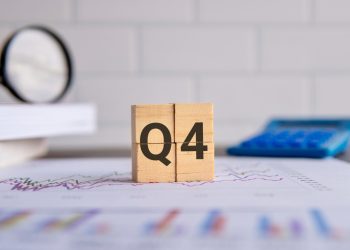The Asian American and Pacific Islander (AAPI) community is swiftly becoming the largest minority group in the U.S. Population growth and record immigration numbers show that this demographic will continue to play an influential role in the real estate sector, But according to the recently released State of Asia America report from the Asian Real Estate Association of America (AREAA)—also presented by RE/MAX and Freddie Mac—this segment of the population is severely underrepresented, leading to missed economic opportunities.
Mike Reagan, SVP of Global Alliances at RE/MAX LLC says the report “highlights the growing power and influence of the AAPI community—the fastest growing population in the United States.”
A Growing Force in Homeownership
What does this growth look like? According to the report, AAPIs are expected to outnumber Hispanic-Americans by 2055, becoming the largest minority group in the nation due to domestic growth as well as immigration. Just between 2000 and 2015, the AAPI population grew by 72 percent in America.
When it comes to homeownership, AAPIs are making the largest gains compared to all other segments in the U.S. Zillow data shows that by 2016, 58.1 percent of AAPIs owned a home, compared to the only 10.1 percent that did in 1900. Their buying power is increasing, as well. The report states that according to Zillow research, AAPIs could afford to purchase homes valued over $155,000 of the average purchase price of other populations. AAPIs also tend to have high credit scores and low loan-to-value and debt-to-income ratios.
A few factors contribute to this: higher incomes and an elevated educated level. The average median AAPI household income, for example, is $73,000, higher than the average household income across the U.S. of $53,000. Some segments of this population earn even higher averages, with Indian-Americans topping the list at $100,000, on average. AAPI women are making more on average compared to other female groups, as well. The report found that 23 percent of AAPI women over 25 years of age earn $50,000 or more, higher than the national average of 17 percent for women who earn the same.
In terms of education, the segment is seeing increased undergraduate enrollment rates, which grew from 198,000 in 1976 to 1.7 million in 2019, according to the report. Twenty-one percent of AAPIs also go on to acquire an advanced degree after receiving their bachelor’s.
Both of these factors are contributing to a generation of consumers who are increasing their buying power—by 257 percent between 2000 and 2017, the report states. This buying power is expected to exceed $1.3 trillion by 2022.
Barriers and Challenges
There are, however, homeownership obstacles that pertain specifically to this growing segment. Primarily, it’s language access. Over 77 percent of AAPIs speak a language other than English in their home, most commonly Cantonese or Mandarin. Because many AAPIs have limited proficiency with English, there is a major gap in communications when it comes to understanding the home-buying process. There are insufficient representation or translation resources for the 12 percent of AAPIs that do not speak English well and the 4 percent that do not speak English at all.
Additionally, many AAPIs lack a substantial credit history or do not have one at all, making today’s mortgage requirements difficult to meet. Another challenge is a lack of diversity and inclusion within the real estate space. According to the U.S. Government Accountability Office, the housing, lending and financial sectors are reportedly some of the least inclusive and diverse industries in the nation.
Reagan says that real estate professionals who take the time to learn about the challenges and needs unique to the AAPI community “position themselves to provide better service and more value to customers.”
Tom Truong, the 2019 president of AREAA, believes that closing these gaps in the AAPI community is possible, and hopes that the report will help educate the public on the current status of AAPI residing in America.
“The same entities that can support growth in AAPI homeownership can mutually benefit with vast financial opportunities made available with this rapidly-growing demographic,” he says. “I hope this report inspires greater partnership, so we may continue our mission of supporting greater AAPI representation through greater homeownership and increased quality of life.”
Solutions to Strive For
AREEA, RE/MAX and Freddie Mac are focusing on three key areas as they work toward finding solutions to help meet the homeownership needs of the AAPI communities. These three points are:
Language Access – AREAA is working with the Federal Housing Finance Agency to continue supporting access to credit for mortgage-ready buyers who have limited English proficiency (LEP). They are focusing specifically on creating an online clearinghouse with centralized access to resources that will help lenders, servicers and housing counselors better serve LEP borrowers.
Alternative Credit – This initiative includes promoting the use of additional criteria such as rent and utility payments to prove creditworthiness, rather than relying on credit history—all without sacrificing strict underwriting standards.
Lack of Diversity and Inclusion – AREAA has worked with Fannie Mae and Freddie Mac to add several languages, including Chinese, Korean, Vietnamese and Tagalog, into the preferred language field in the Uniform Residential Loan Application. Additionally, through the “No Other” campaign, AREAA included Asian Americans as a standalone category in quarterly reports on homeownership by race and ethnicity.
“The truth is that changing demographics, growing consumer expectations and the evolving economic landscape create opportunities for the housing industry to grow and adapt, and we want our clients to take advantage of these opportunities,” says Danny Gardner, SVP, Single-Family Affordable Lending and Access to Credit at Freddie Mac.
For more information, please visit www.areaa.org.
 Liz Dominguez is RISMedia’s associate content editor. Email her your real estate news ideas at ldominguez@rismedia.com.
Liz Dominguez is RISMedia’s associate content editor. Email her your real estate news ideas at ldominguez@rismedia.com.











